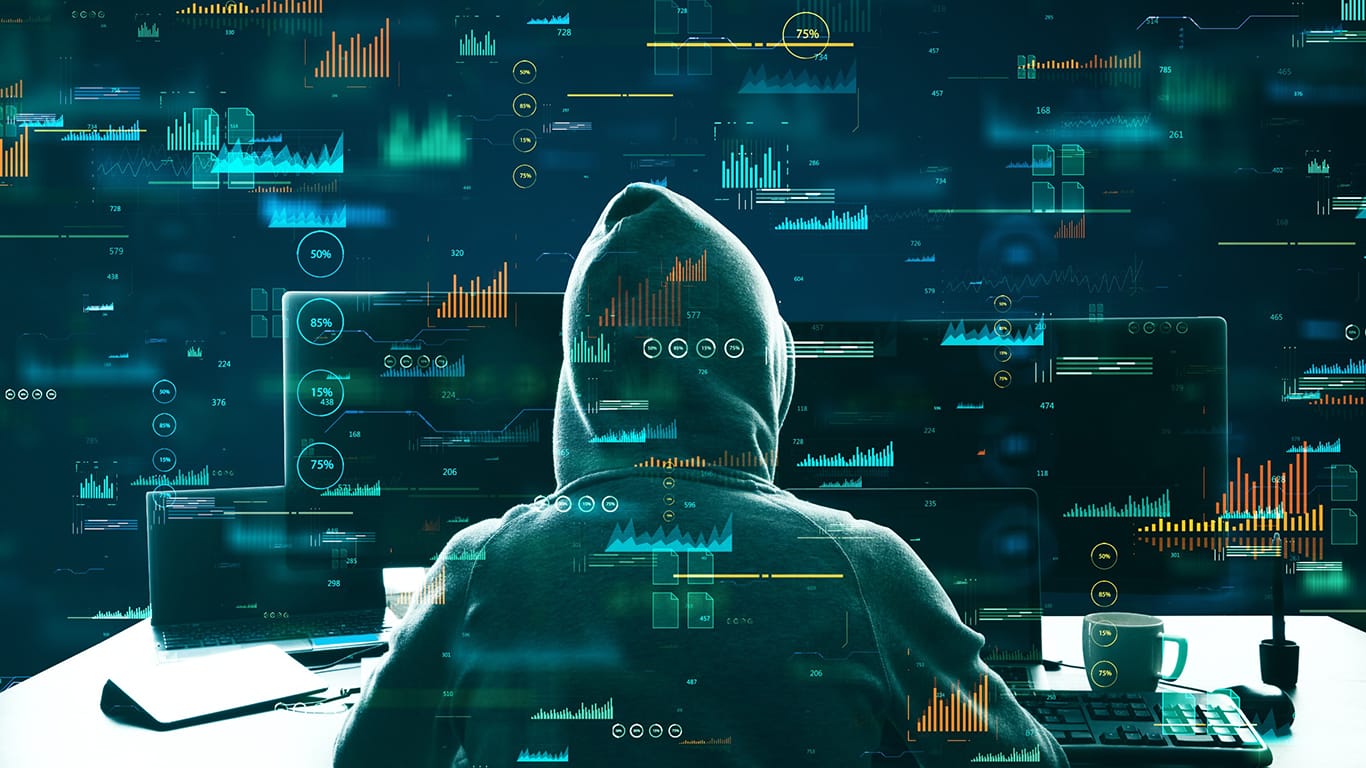In a world where cyber threats are prominent news stories, navigating the digital realm calls for awareness and proactive measures. Last year, the number of ransomware attacks in the finance industry surged by 64 percent, and was nearly double the level seen in 2021. Approximately 95 percent of breaches are financially motivated and 86 percent use stolen credentials. Prevent cyber attack and protect yourself, your family and your business while using your electronics by staying up to date with the latest cyber-attack prevention knowledge.
LEARN MORE: ASU Law launches AI focus in multiple degree programs
How to Spot the “Bad Guys”
Exercise caution and take proactive steps when receiving unexpected calls, emails, online messages or texts. When a communication catches you off guard or surprises you, reaching out to the person before accepting its legitimacy is best. For example, if someone sends you an odd message on Facebook, call them before responding or opening links or attachments. If you receive an unexpected text that appears to be from a saved contact, call the person at a phone number you trust before taking any action.
If it has been a while since you last heard from the sender, be cautious, as there is a higher likelihood that it could be a scam, particularly if the message contains links, attachments, or requests for money. Trust your instincts and take precautions to protect yourself from scammers. Be wary of any questions that request additional information, such as your phone number, email address or physical address. While it may seem like common sense not to share your bank account details, people could still access your bank account if it is linked through another form of communication.
Malicious individuals often exploit our sense of urgency and use our fight-or-flight response to their advantage. If a message creates a sense of urgency, pause and assess the request before responding. Few situations warrant such heightened emotions. Recognize the feeling of panic as a red flag, indicating a potential risk. If a message requires immediate action, being cautious will help you protect yourself.
Advice for Families and Small Business Owners

People who are rushed, have a high net worth, or are less proficient in navigating the digital landscape are more vulnerable to scams. Implementing a system that requires two peoples’ approval for higher risk online actions can prevent rash decisions that lead to unfortunate mistakes. For example, many banks offer dual control, which is a security feature that requires two people to authorize certain types of transactions. Wire transfers are very commonly used to steal money. Dual control would add a critical security check that could stop hackers before money leaves your account. Additionally, ensure that you have strong passwords unique to each account and that they are changed frequently. Invest in anti-malware software and be extra cautious with suspicious emails, pop-ups, links, and attachments.
How Companies are Helping
In addition to the individual measures you can take to protect yourself from cyber-attacks, many companies are also playing a role in encouraging and improving online security.
Internet service providers such as GFiber are at the forefront of this effort, applying solutions to safeguard their networks without compromising speed. GFiber is a fiber broadband service provider that prioritizes its customers’ security by automatically managing ongoing firmware updates for home routers and extenders so its customers don’t have to.
Firewalls are another powerful cyber defense tool. Firewalls act as a barrier between the network and hackers, preventing unauthorized access. By utilizing this technology, companies can help improve the security of their customers’ information and defend the network from outside attackers. GFiber provides firewall protection for non-technical customers and can be customized by power users.
As the world evolves, it is important to be aware of the risk of cyber-attacks. By exercising caution, looking for red flags, and implementing security measures, we can help ourselves, our families, and our businesses stay safe from hackers.
Author: Arleen Hess is a technical program manager at GFiber. She spearheads the 3rd party risk department. Arleen brings over 15 years of hands-on experience in cybersecurity. She is committed to keeping people and businesses stay safe online. Arleen is also passionate about exploring emerging technologies and enjoys advocating for online safety initiatives within her community. GFiber is a high-speed broadband internet service that uses fiber optic cable to deliver fast internet right to your home or business. Learn more about GFiber by visiting fiber.google.com.




